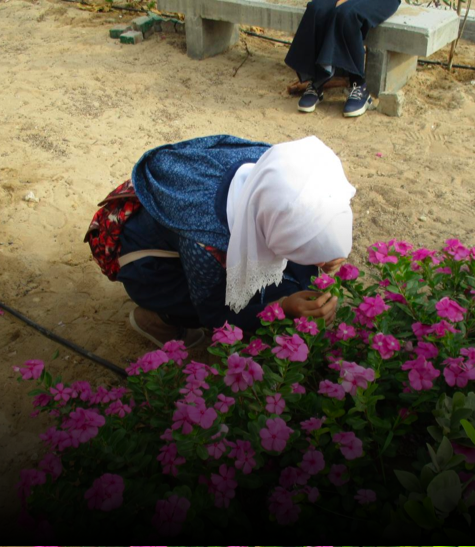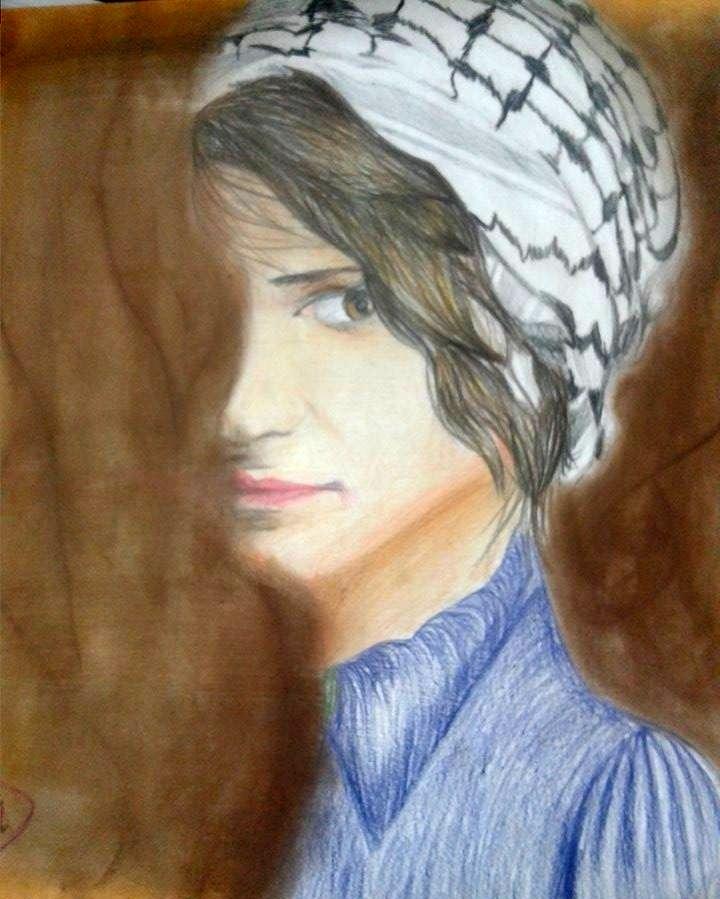A day in the life of Jamela
A photo tour of the life of a Gazan girl
Seventeen-year-old Jamela lives with her parents and six siblings in Gaza. She has never left Gaza, but dreams of one day seeing the world and becoming a famous artist.

Dreaming of the future
Jamela has applied for a scholarship to study fine arts abroad. However, she is worried that her parents will not let her go, because she is a girl and opportunities for girls are much more limited in her community.

Rising early, challenging clothing choices
Jamela’s apartment is on the top floor of a house that is also inhabited by her grandparents and aunts and uncles. The whole family wakes at 5:30 am for prayers. She then takes time to choose her clothes, to ensure they adhere to strict social norms of what girls should wear in Gaza.

Early morning, economic struggles
At 6:30am Jamela leaves the house and walks to school, because she cannot afford to take the bus which costs 8 NIS (around 2 GBP). While her father owns his own small business, her sister’s university fees takes precedence.

School time – and mobile phones
Jamela loves going to school. She enjoys being with her friends and understands that education is important to ‘get a job in the future and to become self-sufficient’. She uses her friends’ mobile to communicate with the ‘external world’ and browse the internet.

Banned from being on the streets
Most days, other than school, Jamela is required to stay at home—because she is a girl. She is not allowed outside without her mother or aunt to escort her. She resents this lack of freedom: ‘I feel angry and depressed, like it is my fault. Everything is forbidden, everything is restricted and everyw

Homebound and better days
Tuesdays and Thursdays are the best days of Jamela’s week – she is allowed to visit the Cultural and Free Though Association after school. At the centre she draws and engages in sports, science and other activities. For her, the programme is a ‘social club to vent, debrief and develop positive energy’.

Dinner time and double standards
Jamela helps her mother make and serve dinner. When the food is ready, she calls her younger brothers from outside. ‘Men are consulted about the type of food they prefer; females are not consulted at all. Even at official dinners, men eat first, then women’. ‘Even at Eid, I am not allowed to be happy,’ I have to stay but ‘I want to see the slaughter of the sacrificial cow. I cried a lot when my uncle didn’t allow me to see that ritual because there were men at the slaughtering site’.

Space to think
Jamela struggles to balance her time between her homework and chores: often she is only able to start doing her homework after dark. She uses a rechargeable lamp as the electricity in Gaza often goes out
